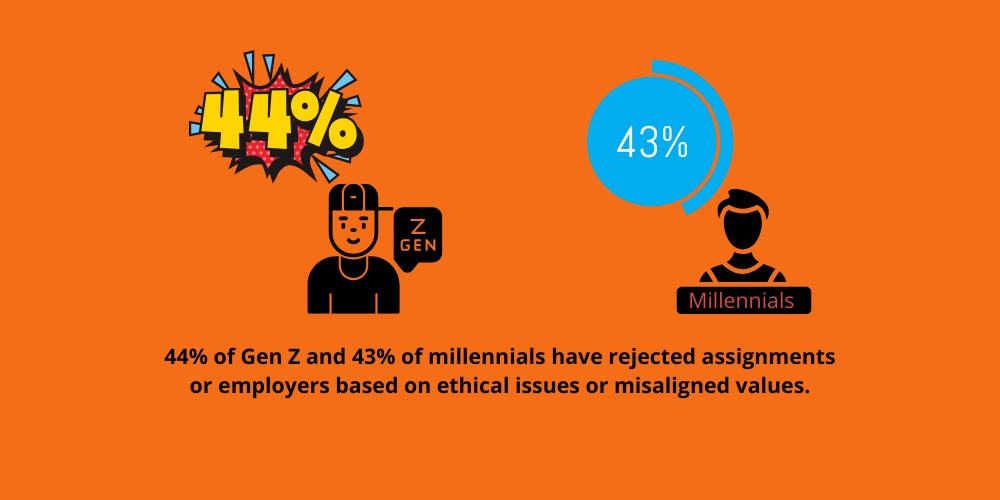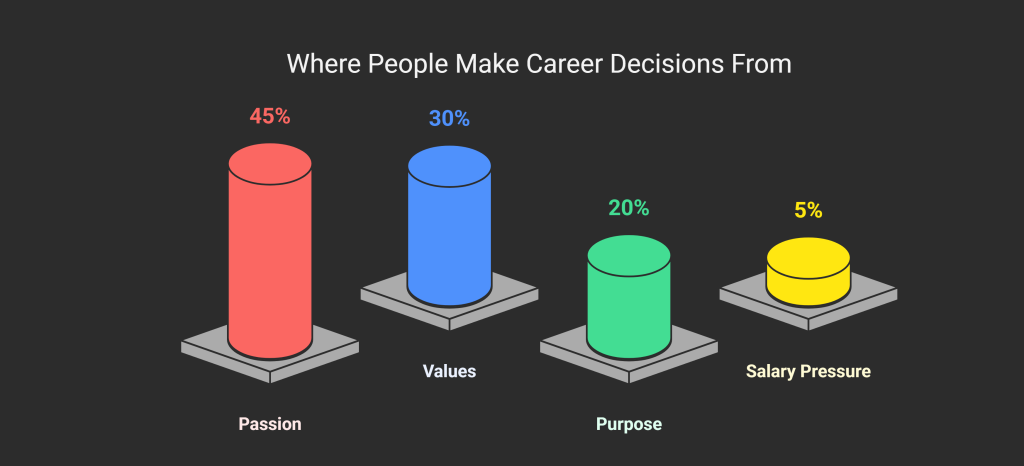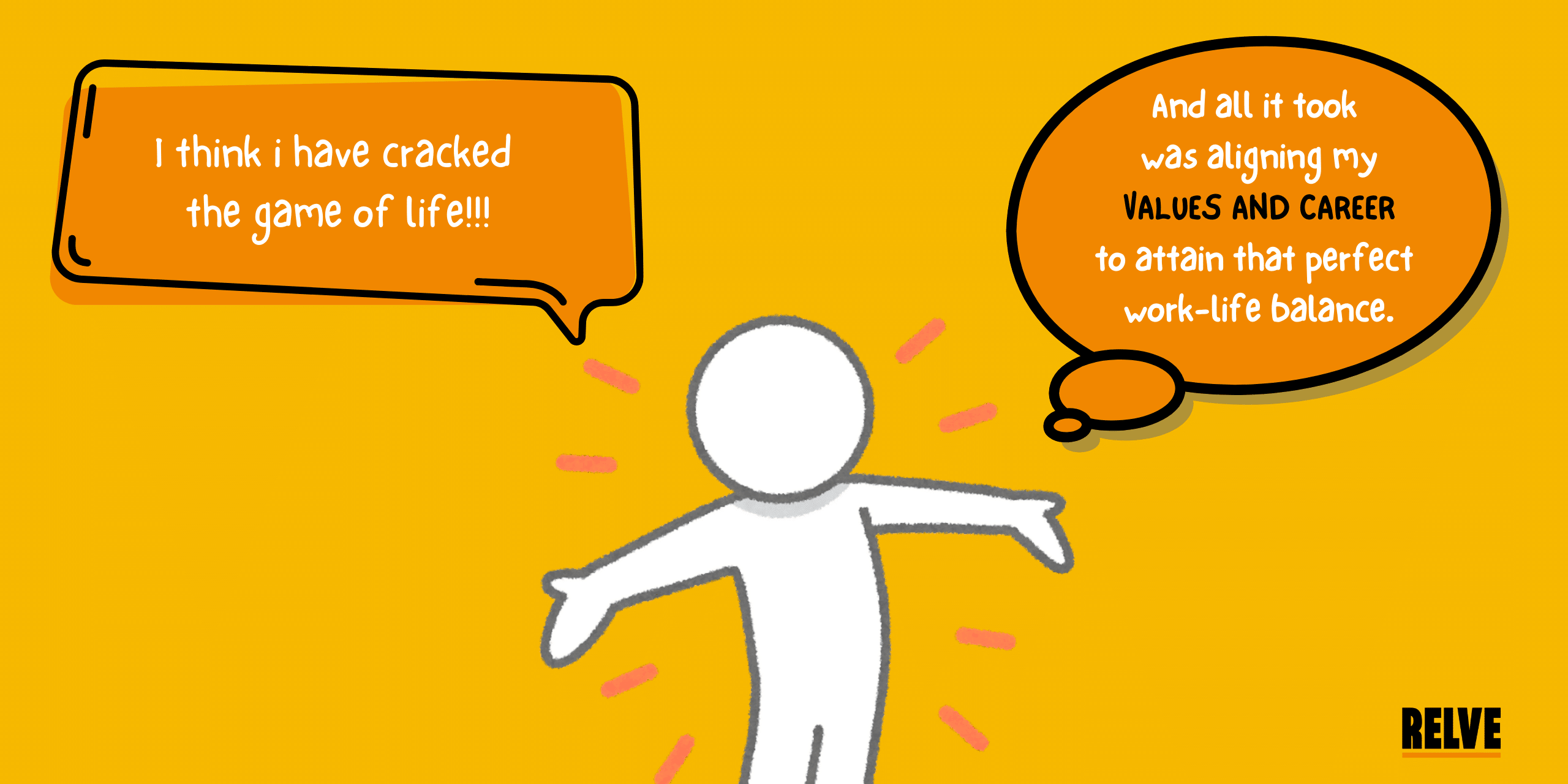Ever catch yourself staring at your screen, wondering how this became your life? You’re not the only one. A lot of people hit a point where their job feels off, like something’s missing. That feeling usually comes from a disconnect between your values and career and it’s more common than you think.
The good part? You can do something about it. And no, it doesn’t start with a new journal or a self-help podcast. But by digging into the real drivers of satisfaction at work, your values.
In this blog, we’ll talk about what values are, how they shape your career and value decisions, why passion alone won’t save you from a soul-crushing job, and how you can start making choices that actually make sense for you. Let’s get into it.
Understanding Core Concepts Behind Values and Career
Your values are the beliefs that shape how you move through the world. They help you decide what feels right, what feels off, and when it’s time to walk away.
Now, bring that into the career conversation because when your job clashes with those beliefs, it doesn’t take long before something feels off. When people talk about values and career, they’re really asking this: Does what I do match who I am? If not, expect burnout, frustration, and maybe an office meltdown (we’ve all seen one).

According to a Deloitte report, 44% of Gen Z and 43% of millennials have rejected assignments or employers based on ethical issues or misaligned values. That’s almost half the workforce saying “no thanks” to misaligned careers.
So, if you’ve ever felt like something’s off in your job, it might not be the job. It might be the fit.
The Interplay Between Values, Passion, and Purpose
Now for the messy trio: values, passion, and purpose.
Let’s clear something up. Passion is not a plan. It’s more like caffeine. It gets you moving but doesn’t tell you where to go.
The purpose is the destination. It gives your work meaning. But even that won’t help if the vehicle (your job) falls apart because the tires (aka your values) are misaligned.
Harvard Business Review points out that values should come first. Passion is fleeting, and purpose can shift but values? They stick. When your job supports your values, that’s when passion and purpose make sense.
So if your goal is long-term career development and work values, start with the values. Not with whatever your friend is passionate about this week on LinkedIn.
🎯 Alignment Meter: Are Your Career Decisions Aligned?
Q1: Do you often say “yes” to roles just because they sound exciting?
Q2: Do you know why your job matters (beyond the paycheck)?
Q3: Do your daily tasks reflect your personal values?
Identifying Your Core Values
Okay, cool, but what are your values?
You’d be surprised how many people skip this part. They know how to write a resume, not a list of what they care about.
Here’s how to figure it out.
- Look Back: When were you most proud of yourself at work? What were you doing? Chances are, your values were front and center.
- Name What Makes You Mad: The stuff that irritates you often reveals the values you’re not seeing.
- Borrow a List: Sites like Indeed offer lists of common professional values, such as honesty, creativity and independence. Use them to get your brain moving.
Oh, and don’t worry if you change your mind later. Your career and values can grow together.
You just need to start somewhere.
Integrating Values into Career Planning
Here’s the part where it gets useful.
Once you know your values, use them as a filter in your career planning. Want to work somewhere fast-paced but care about balance? Red flag. Love teamwork but hate meetings? Redder flag.
Here’s how to apply this stuff:
- Choose the Right Company: Don’t just look at salary. Look at culture. Look at their mission. Look at their Glassdoor reviews (seriously).
- Ask Better Questions in Interviews: Skip the “What’s your work-from-home policy?” and try “What values does your team reward?”
- Say No When It Feels Wrong: That gut feeling? That’s your values talking. Don’t ignore them.
According to Vitae, using your values as a foundation makes your career path more stable and meaningful in the long run.
This is the relationship between values and career aspirations that actually works.

The Role of Values in Career Development
Values aren’t just for feel-good blog posts.
They’re critical for real-world development. Want career advancement? You’re going to need a plan that doesn’t just look good on paper but feels good in practice.
Here’s where values come in:
- Decision-Making: Ethical dilemmas, promotions, job switches. Your values keep you from making “just for the money” mistakes.
- Performance: You work better when you care. That’s not fluff—it’s science. Employees who find purpose are 2.3 times more likely to be engaged at work.
- Leadership: Leaders who lead with values build trust. And trust builds teams that don’t hate Mondays.
🧩 Mini-Quiz: Which Value Drives You Most at Work?
“I stay late at work because…”
If you’re eyeing career paths, knowing your values can also help you stand out. AI is transforming industries fast. But values? They make your skills human, and that’s harder to automate.
Challenges in Aligning Values and Career
Let’s be real. This isn’t always easy.
Even if you know your values, aligning them with your job can feel like trying to fit a square peg in a corporate-shaped hole.
Here’s why:
- Workplace Culture Clashes: You value collaboration. Your manager values micromanaging. Fun!
- Financial Pressure: That high-paying role might go against your values of sustainability or fairness.
- Changing Values: What mattered at 25 might be irrelevant at 35. Welcome to the chaos.
Don’t panic. Values change. Careers shift. The trick is not to cling to a dream job from five years ago. Instead, check in with yourself regularly.
Ask: “Am I doing what matters now?”
That’s how you avoid career autopilot.
Conclusion
Here’s the part where we tie it all up.
Values and career decisions go hand in hand. When you know what matters to you, work becomes more than just a paycheck. It becomes a place where you grow, lead, and contribute with meaning.
- Revisit your resume. Does it reflect your values?
- Ask yourself if your current job supports your purpose.
- Make one change this week that aligns with your top value.
So whether you’re exploring AI career paths, switching industries, or simply wondering why your current role makes you question your life every Tuesday at 3 PM, start with values.
The rest will follow.
